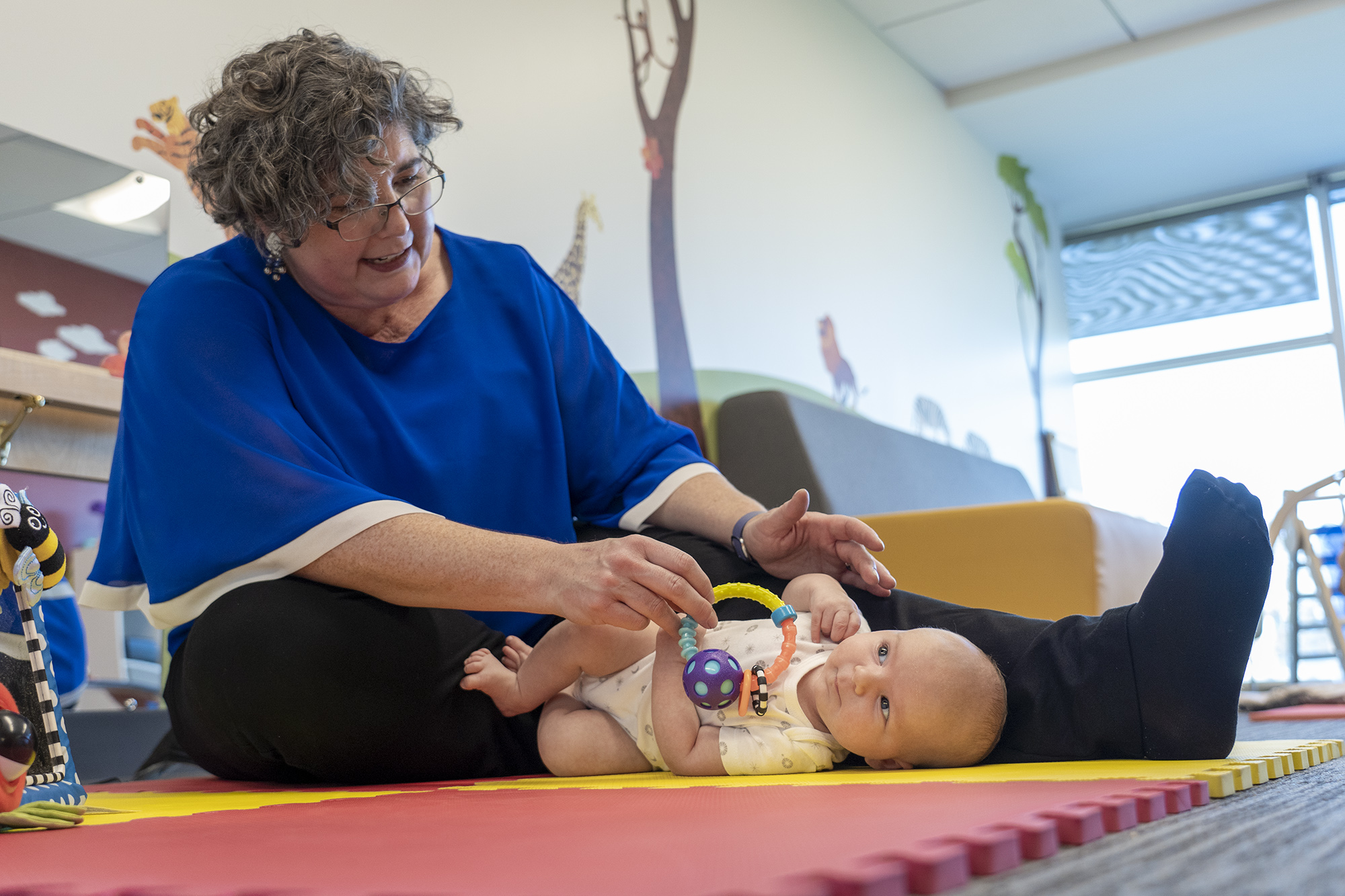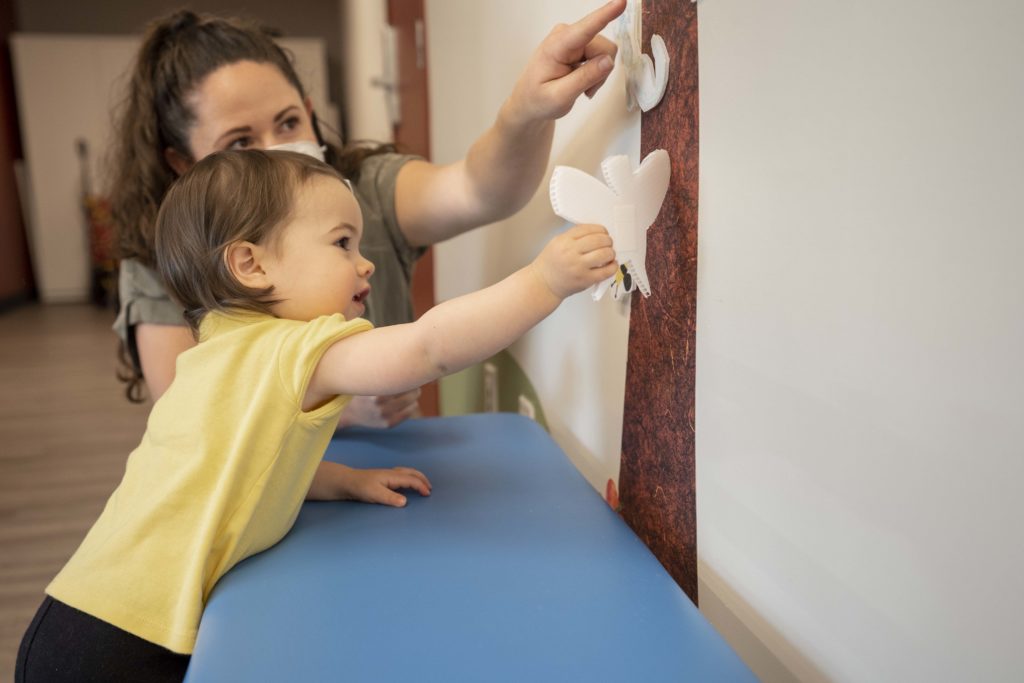03.31.2022
By uscbknpt
Meeting Their Full Potential

USC’s new Motor Development Lab investigates motor control and coordination of children with and without disabilities.
BY MICHELLE McCARTHY
ASSOCIATE PROFESSOR STACEY DUSING says she’s always been a bit of a “kid person.” Whether babysitting as a teen or teaching swim lessons, the Sykes Family Chair in Pediatric Physical Therapy, Health and Development has always felt a calling to advocate for vulnerable populations.
“I identified with this idea that there are so many people out there who need more support to be able to meet their full potential,” she explained. “People undersell those who have disabilities. We can minimize the impact of their disability with intervention provided as early as we possibly can. ”
That’s exactly what Dusing and co-investigator Kari Kretch DPT ’19 plan to do with the newly opened USC Motor Development Lab, where they study the development of motor control and coordination in infants and young children with and without disabilities and investigate the impact of physical therapy treatment on motor and cognitive development.
“I have a strong passion for research because there are so many unanswered questions in clinical practice, and we need more people who can ask and answer these questions,” she says. The lab follows a two-pronged approach: identifying which kids are at the highest risk of having disabilities and determining the best course of action to treat them.
“The lab’s mission is to link early detection and intervention needs,” Dusing said. “We believe treatment matters if we deliver it earlier.”
For Dusing, long-term success for the lab will include the ability to change policies around distribution of much-needed services. “It needs to be based on evidence versus the government policy choosing who gets served.
Evidence implementation into practice takes time, communication and persistence. The 2022 Sykes Symposium: Early Detection and Treatment for Infants and Children with or at High Risk for Cerebral Palsy, taking place later this month, will focus on just this.

“I’d really like to see changes to health disparities in developmental disability research and services,” she said. “Who receives physical therapy as an infant is extremely racially biased. We made some gains in Virginia in the black population, but in Los Angeles, the bigger issue is within the Latinx population.”
Dusing made the transition from Virginia Commonwealth University to USC two years ago to accept the Sykes Family Chair position, where she is able to dedicate 100 percent of her attention to research and training. “There aren’t enough researchers who focus on pediatric rehabilitation, so now I can serve and mentor in that area. I get to train the next generation of researchers.”
While the lab was being constructed and hit with delays due to COVID-19, Dusing’s team was working out of a conference room on campus for a year and a half. So they have a number of studies that have been up and running for some time.
“SIT-PT a multi-site clinical trial comparing two different types of physical therapy intervention,” she said. “And we have several other smaller studies that are ongoing, a lot of which are in collaboration with Children’s Hospital Los Angeles.”
“Having this lab has been amazing,” Dusing continued. “We have one-way glass so it allows us to educate students as well as bring in a larger group to observe — and it doesn’t interrupt treatment. We couldn’t do that in the conference room.”
You can follow the USC Motor Development Lab is on Facebook, Twitter and Instagram.
PHOTO: CHRIS SHINN

